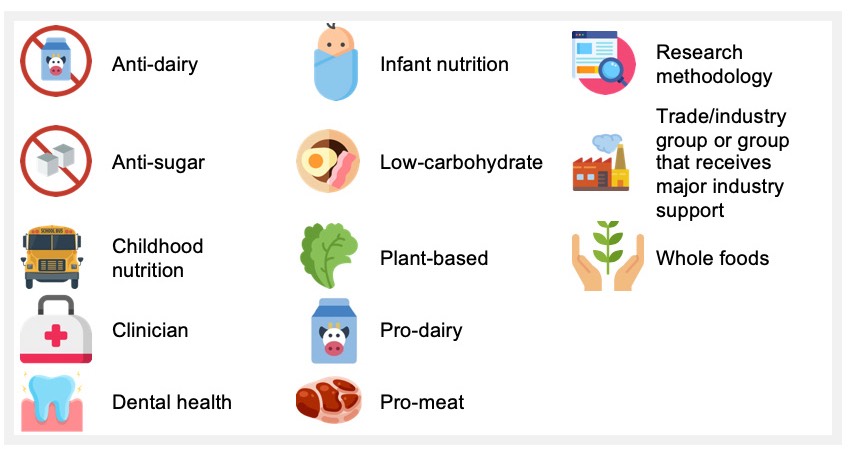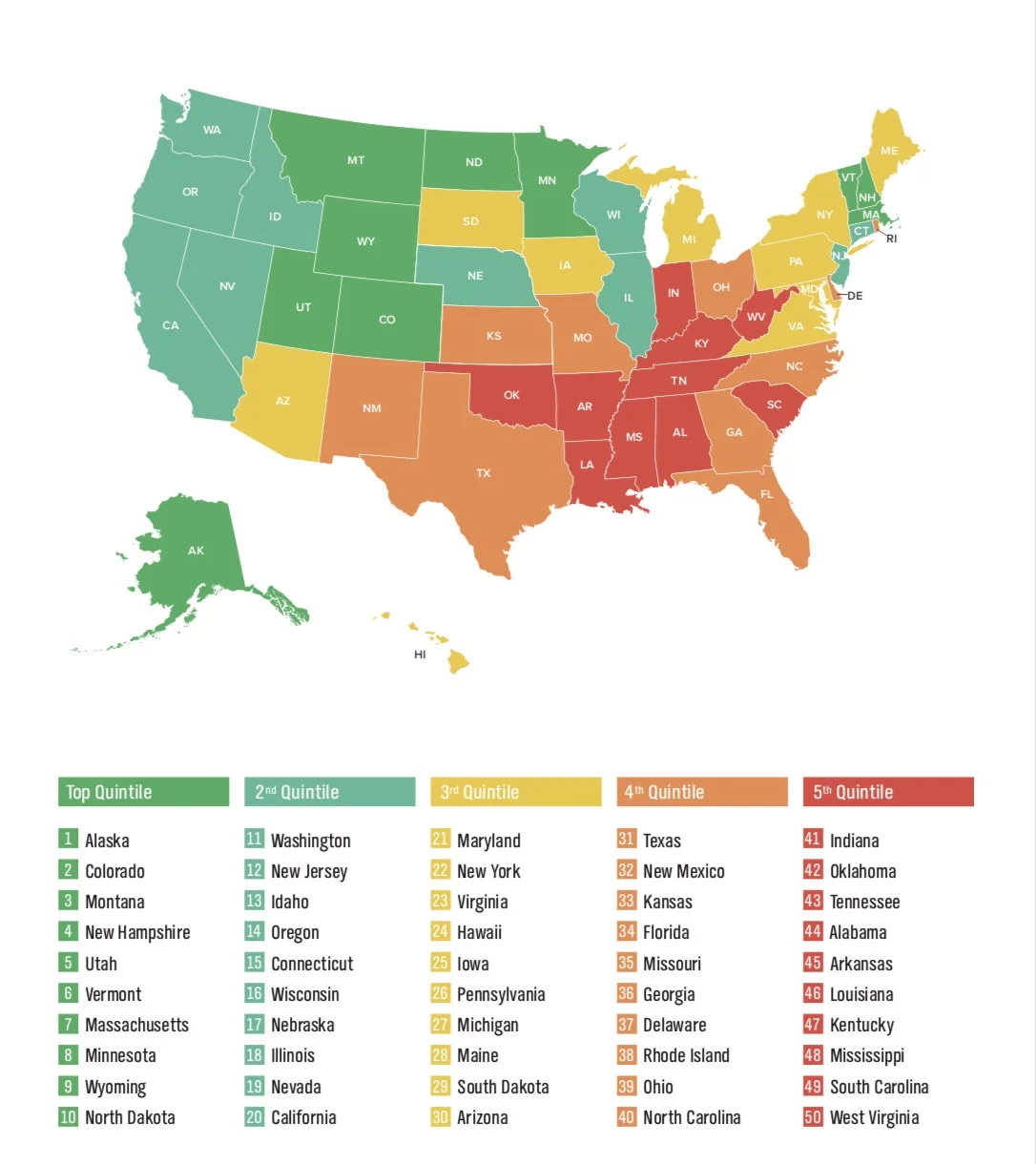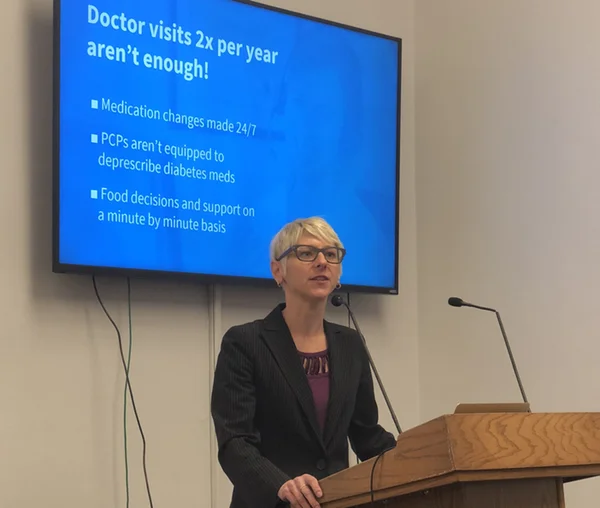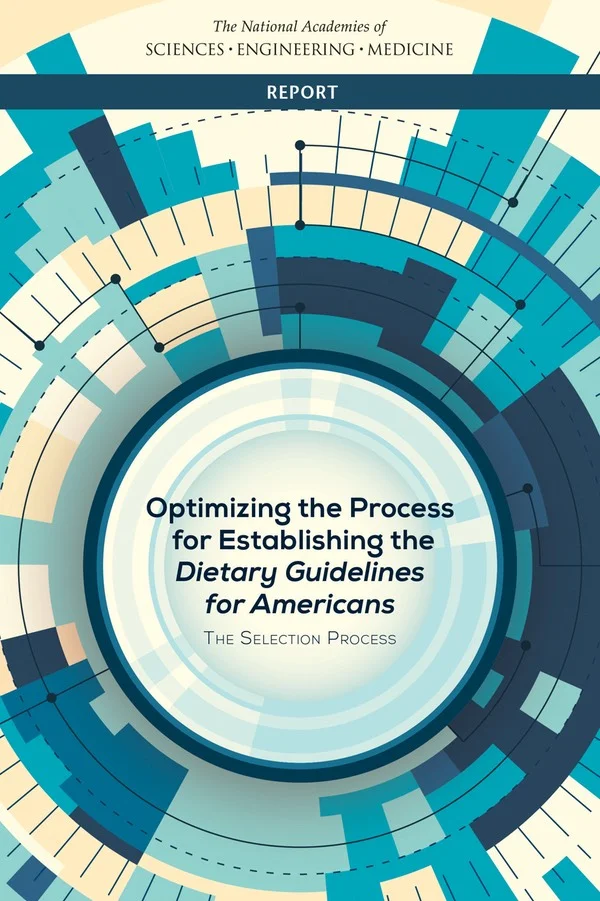U.S. News & World Report Annual Diet Cover Based on Outdated, Weak Science
Today, the Nutrition Coalition, a group that aims to bring rigorous science to nutrition policy, responded to U.S. News & World Report’s 2020 story on best diets by releasing a statement from Executive Director Nina Teicholz
We Need Nutrition Advice We Can Trust--Donate for a Healthier America
As we close out 2019 and plan for the year ahead, I’m asking you to join us and make a year-end donation to The Nutrition Coalition. Funding from our supporters makes up a critical portion of our revenue, and I’d love to be able to count on your support as we head into next year.
Portion Control Becomes The Latest Obesity Target
A new group called the Portion Balance Coalition (PBC) has been formed to promote the idea that the amount rather than the type of food a person eats is most crucial for good health. Swiss food industry giant Nestle launched the group earlier this year, with the intention of emphasizing the importance of portion control. Among its members is the U.S. Department of Agriculture (USDA), which is highly questionable given the department’s responsibility not to take sides in scientific debates.
2020 Dietary Guidelines Repeating Past Mistakes, Lacks Scientific Rigor
The expert committee reviewing the science for America’s nutrition policy, the Dietary Guidelines for Americans (DGA), held its third, two-day meeting last week, in Washington, D.C. While the committee is working hard to review the science, some “38,000 studies” so far, according to government officials, the process suffers from significant flaws, including—crucially—a lack of up-to-date methods for reviewing the science. Additionally, there are fundamental problems in the reviews on low-carb diets and saturated fats which, unless changed, will inevitably result in flawed outcomes.
Industry, Plant-Based Advocates Dominate Comments at Guidelines’ Meeting
More than 70 commenters delivered altogether about four hours of public comments to the Dietary Guidelines Advisory Committee (DGAC) meeting last month. Representatives from industry, non-profit groups, supporters of plant-based foods, low carbohydrate diet advocates, and private citizens all took their turns at the microphone to express what they most wanted to see in the next Dietary Guidelines for Americans (DGA).
USDA Gets a Failing “GRADE” on Science
In oral testimony recently to the Dietary Guidelines Advisory Committee (DGAC) in Washington, D.C., Nina Teicholz, Executive Director of The Nutrition Coalition, emphasized that the Guidelines have historically excluded or ignored the vast majority of clinical-trial research on nutrition and also—citing expert opinion—that the scientific methodology of the Guidelines fails to meet basic scientific standards.
First Ever Birth-24 Month Dietary Guidelines: Deliberations and Complications
USDA-HHS are Issuing the First-Ever Guidelines for the Birth-24 months Population: Is This a Good Idea?
Dietary Guidelines Are Only for Healthy Americans…A Surprise from the 2020 Guidelines’ Kick-off Meeting
The advisory committee appointed to oversee the science for the next set of Dietary Guidelines, in 2020 held its inaugural meeting last month—with some startling surprises. Most extraordinary was the government’s assertion that at a time when 60% of the population is afflicted with some kind of nutrition-related disease, the Guidelines will continue to be a policy for healthy Americans only.
In a Questionable Report, National Academies Lower Salt Limits
How much salt is optimal for good health? According to a report last month by the National Academies of Sciences, Engineering and Medicine (NASEM), lower is indeed better. This conclusion contradicts the organization’s own 2013 investigation, however, and also ignores a large and growing body of research showing a moderate amount of salt to be ideal for heart health.
Who's On The Guidelines Committee
Who is on the 2020 Dietary Guidelines Committee and What Are Their Conflicts of Interest
EAT-Lancet Report is One-sided, Not Backed by Rigorous Science
The EAT-Lancet Report published last week, with headlines globally, stated that to save both planetary and human health, the world’s population needed to cut back dramatically on red meat and other animal products. The prescription was very close to a vegan diet.
Secretary Perdue: Your Leadership Urgently Needed on Advisory Committee for Next Dietary Guidelines
By Dr. Dawn Lemanne, Dr. Mark Cucuzzella, and Dr. Jake Kushner
We have written an urgent letter to Sonny Perdue, Secretary of the U.S. Department of Agriculture, and we hope that you will consider joining us.
U.S. News & World Report Gets It Wrong On ‘Best’ Diet Again
Every year in January, U.S. News & World Report publishes a cover story on what its experts consider the ‘best’ diets. The magazine consistently ranks two high-carbohydrate, low-fat diets, “DASH”[1] and Mediterranean, at the top of its list despite the razor-thin base of rigorous evidence supporting health benefits for either of these.
NIH Seeks Feedback on Nutrition Research Plan
As the leading government funder of nutrition research, the National Institutes of Health (NIH) is seeking public comment on a draft strategy to “coordinate and accelerate” clinical research over the next 10 years. This is a perfect occasion to contribute your thoughts and help guide NIH research towards important, unresolved issues in nutrition science.
Diabetes and Obesity Still on the Rise – Billions Spent Promoting Dietary Guidelines Hasn’t Made a Dent
A new report on the continued alarming rise of diabetes in the U.S. illustrates how long-accepted dietary guidance has for decades failed to contain this costly and debilitating disease. As part of their State of American Well-being series, Gallup and Sharecare found that 11.5% of the U.S. adult population was diagnosed with type 1 or type 2 diabetes in 2016-2017, up from 10.8% in 2008-2009.
Is U.S. Nutrition Policy Making the Military (and Recruits) too Fat to Fight?
The U.S. military has a crisis on its hands, as obesity rates continue to rise, both among existing troops and potential recruits who are too fat to serve. Let’s hope our military leaders will take a hard look at its nutritional advice and explore all possible options to improve the health of the men and women who serve in uniform and protect our nation.
Report to Congress: Low-Carb Diet Yields Groundbreaking Results for T2 Diabetes
Sarah Hallberg, chair of the Nutrition Coalition’s Scientific Council, took her breakthrough research on reversing type 2 diabetes to Congress last month. In a briefing to the bipartisan “Food As Medicine” group in the House, Dr. Hallberg detailed results from the large, university-based controlled clinical trial she leads, which reversed T2 diabetes in 60% of participants after just one year on a very low-carb diet.
USDA to bring more diversity, fresh views to Guidelines committee
The Nutrition Coalition applauds a recent move by the U.S. Department of Agriculture (USDA), following advice by the National Academies of Sciences, Engineering and Medicine (NASEM), to ensure a greater diversity of viewpoints on the expert panel that advises Americans on what to eat. This reform is long overdue.
Lesson for the Next Dietary Guidelines Committee: We Need A Diversity of Opinion
An analysis of the last advisory committee to the Dietary Guidelines for Americans, our nation’s top nutrition policy, reveals little diversity of opinion on key dietary issues among the committee’s 14 members.
Government Rejects Most of National Academies’ Recs for Improving the Dietary Guidelines’ Advisory Committee
Earlier this month, the agencies responsible for the U.S. Dietary Guidelines for Americans quietly dismissed improvements suggested by the National Academies of Sciences, Engineering and Medicine, to increase transparency of the DGA Advisory Committee and manage member biases.




















